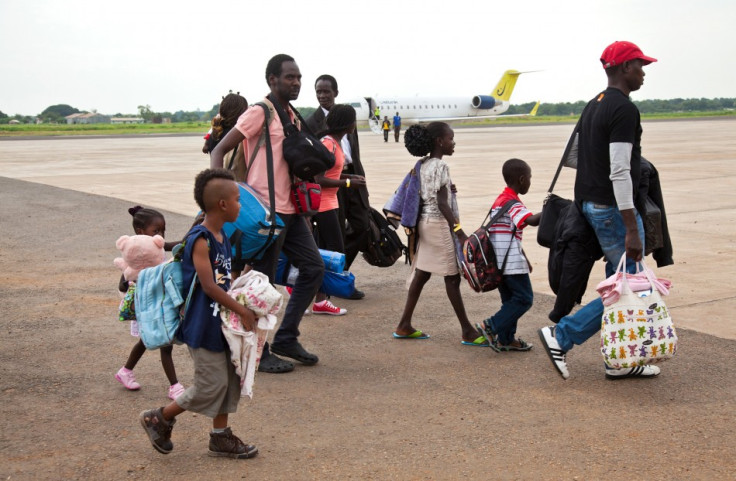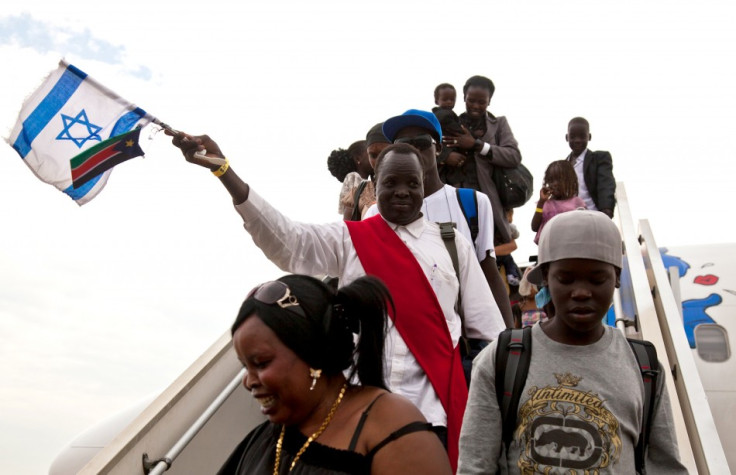Israel Deports South Sudanese Illegal Immigrants at Start of Mass Expulsions
Israel kicks out more than 120 South Sudanese in first stage of process that could see thousands of unauthorised African migrants forced out

The first wave of expulsions of illegal immigrants has taken place after 127 South Sudanese were flown out of Tel Aviv bound for the South Sudan capital of Juba.
A visiting delegation from South Sudan did not oppose the move. Israel said it was offering a monetary incentive to immigrants to leave the country.
Authorities rounded up illegal African immigrants in a series of raids.
Some 60,000 impoverished African migrants, mostly from Eritrea and South Sudan, have entered Israel in the last few years.
Most of them were smuggled through its southern border with Egypt. They were either fleeing repressive regimes or seeking a better economic situation.
The influx of migrants has created tensions in Israel with a number of violent incidents reported.
In south Tel Aviv, several people were arrested after an anti-migrant protest turned violent in May.
As tensions continued to rise, the government started rounding up migrants, saying it hoped to expel at least 4,500 Africans.
Despite the measure more African migrants continue to enter Israel, interior ministry spokeswoman Sabine Haddad said.
Haddad estimated that while Israeli authorities rounded up about 300 people, some 260 more Africans entered the country illegally.
She said the group of migrants that left had agreed to do so after being threatened with arrest.
Haddad also revealed up to 500 had already agreed to leave and that another flight is scheduled next week.
Adults who sign a voluntary departure form will receive €1,000 (£800) each to help them resettle, and minors will be given €500.
South Sudan's interior minister Alison Manani Magaya said a delegation of South Sudanese officials was in Israel to keep track on the number of compatriots who were leaving.
"They can come and stay with their relatives," she said. "They were there [in Israel] because of the [Sudanese civil] war. The war is over and they should come back home."
Magaya defended Israel. "That is their country," she said. "If they don't want people, then they can come home."
But rights group and migrants' advocates deplored were angry.
"They [the migrants] tell the cameras, 'we are happy, we are proud' but in private conversations they tell us they're very afraid," said Orit Marom of Asaf, an aid organisation for asylum seekers in Israel.

© Copyright IBTimes 2025. All rights reserved.





















